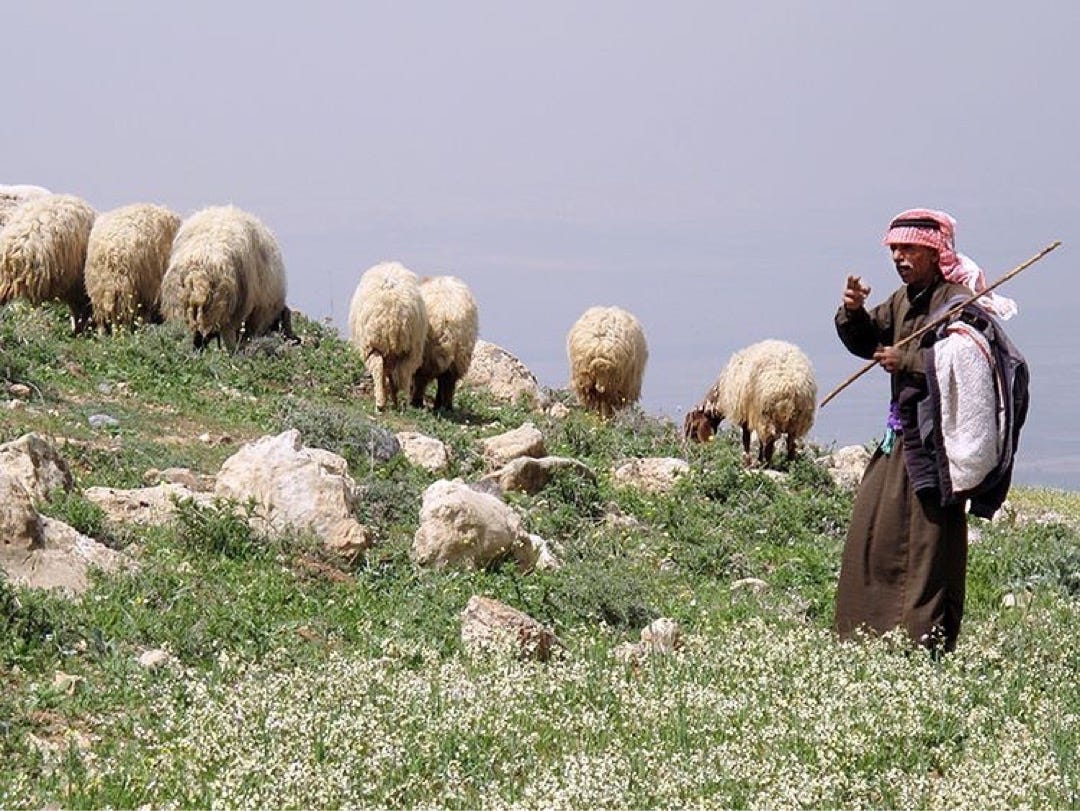
“Carpentry was not the only trade he knew about. His parables show us that he understood all the work that country men do.
He knew about the work in the vineyards, about plowing and sowing and reaping and the keeping of sheep. When he had finished helping his own father he would go and help other men who perhaps were old or ailing and had no strong son to lend them a hand… Sheep do not usually follow a shepherd who is not their own, but they would have followed the God who made them.
We see him working in the harvest fields, tirelessly swinging the heavy scythe, gathering the grapes or the olives, pruning the fig trees and quince. He would have enjoyed the tending of the land, of living creatures and growing things, fruit was service to this lovely bit of earth that was his home, and service to the God and father who had made all things good.”
🌱Elizabeth Goudge, God So Loved the World, ch 2
In her narrative retelling, Goudge helps us to imagine what it means to have a God that not only cares for us from out there, outside the cosmos, but also in here too. To have a God that was not too proud to care for us, but also our fuzzy sheep, our olives, our grapes—this is creation care at its finest. 🌱
Here are a few scenes from agriculture in the Galilee region:
Keep reading with a 7-day free trial
Subscribe to Elizabeth Goudge Bookclub’s Substack to keep reading this post and get 7 days of free access to the full post archives.




